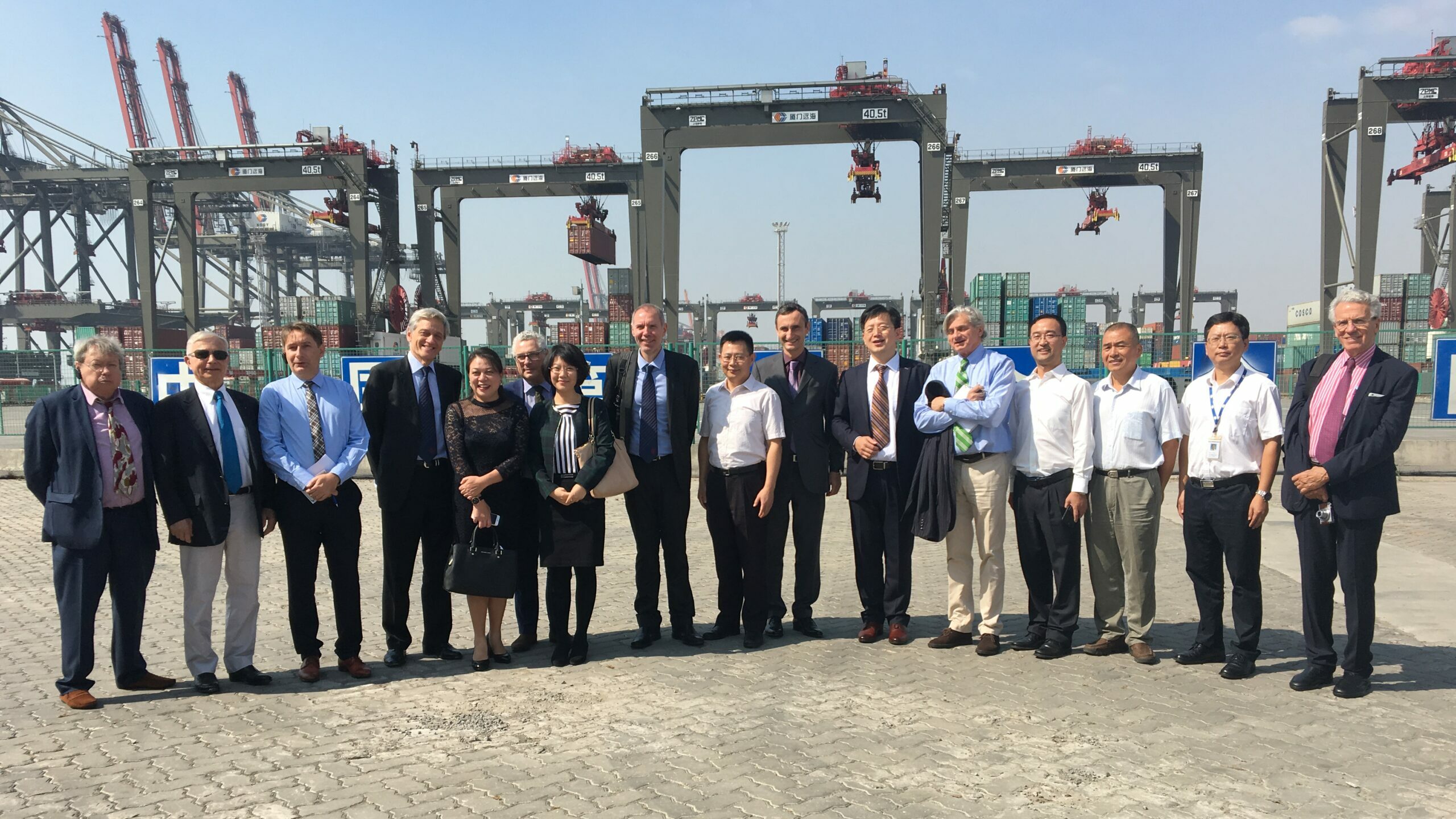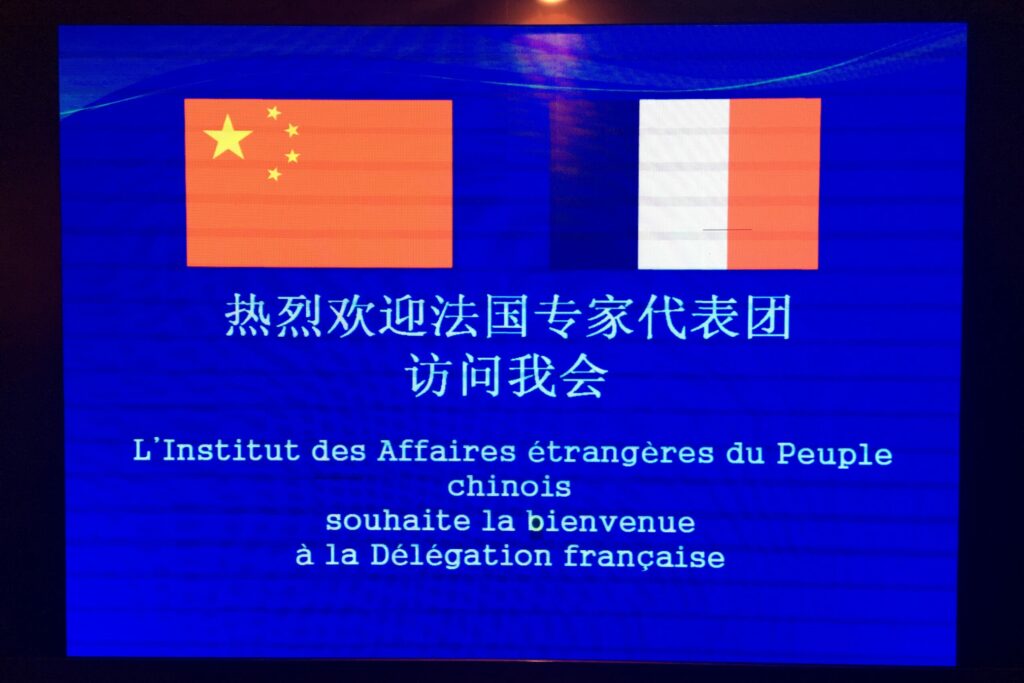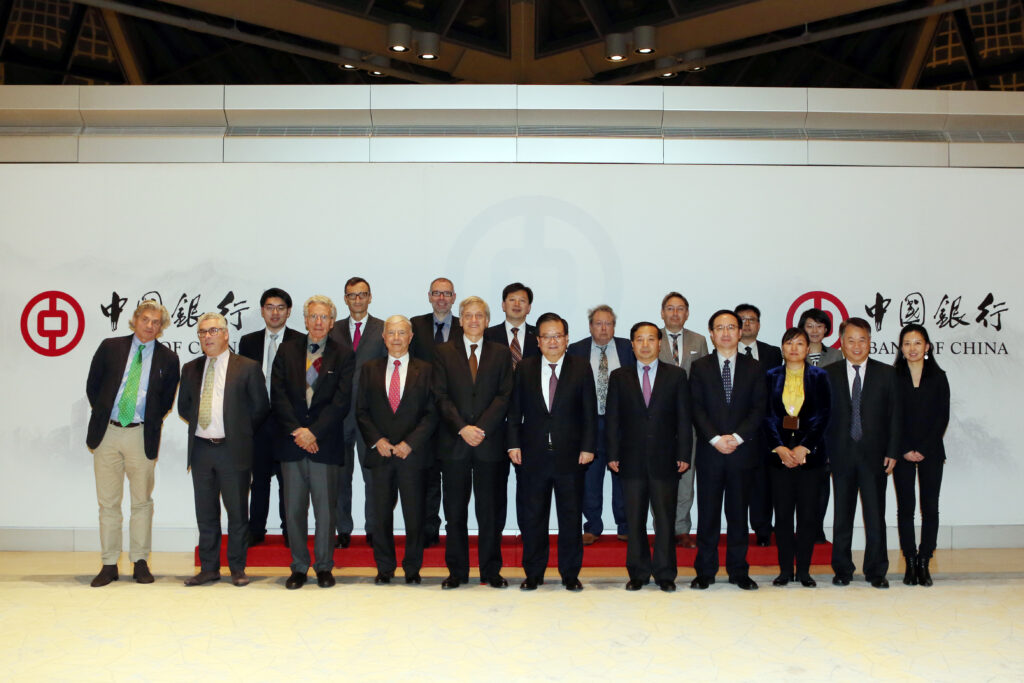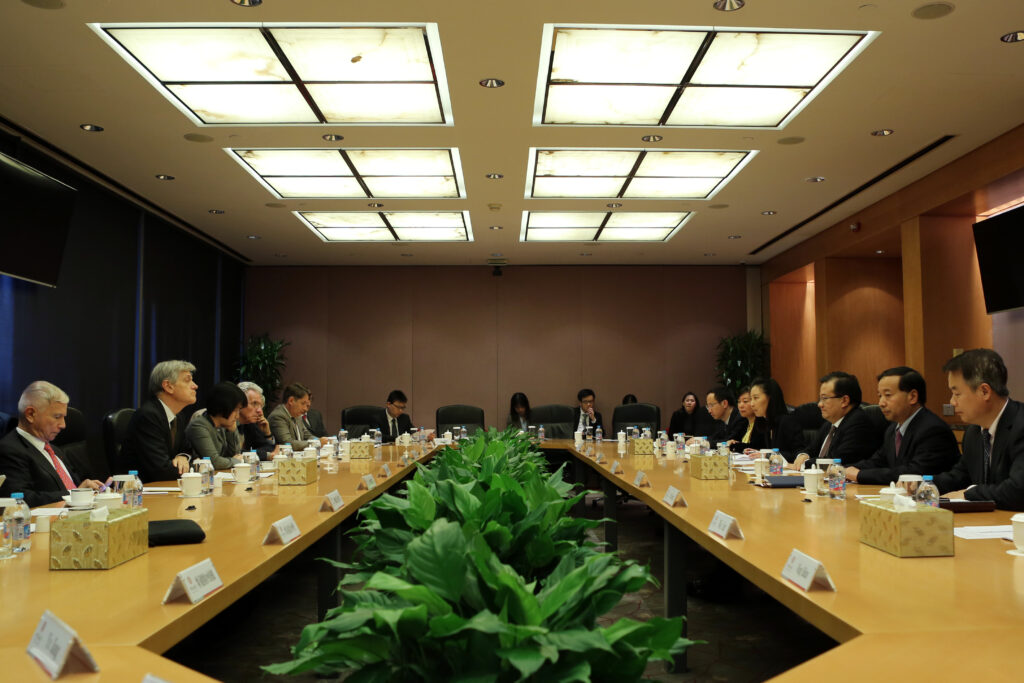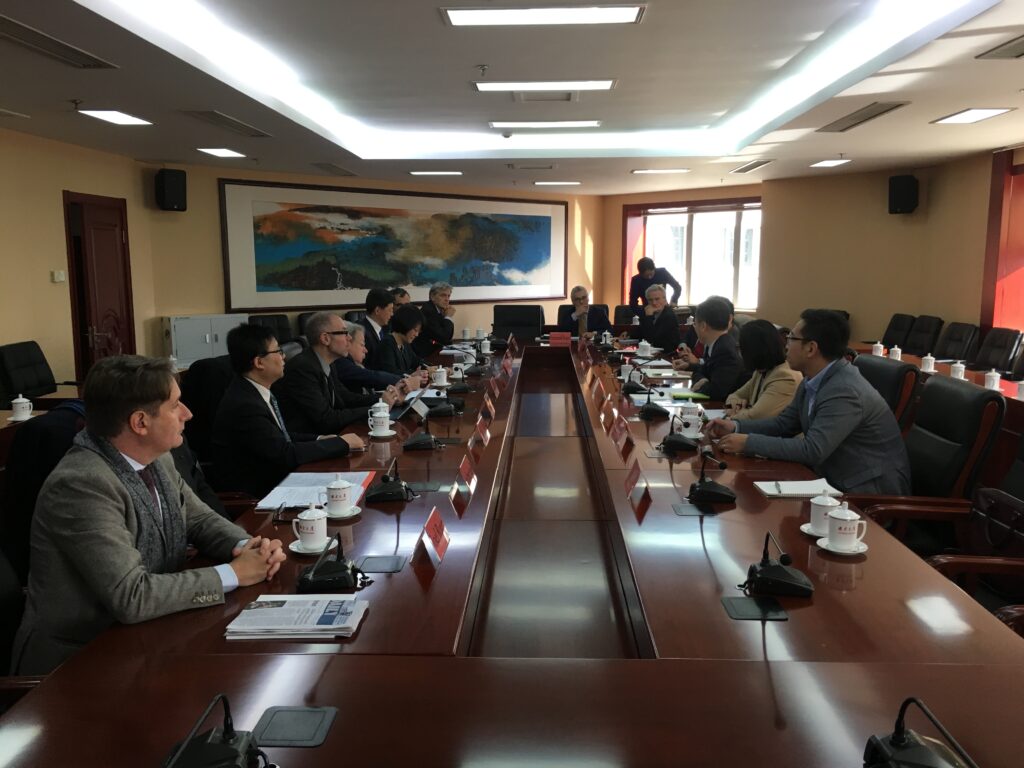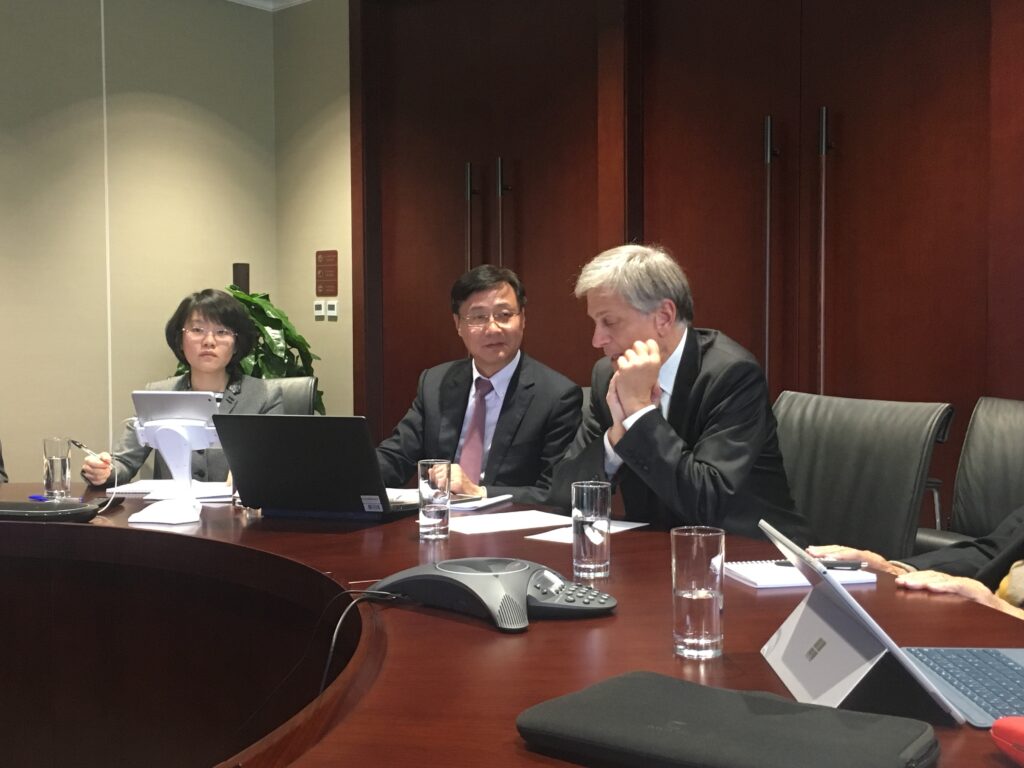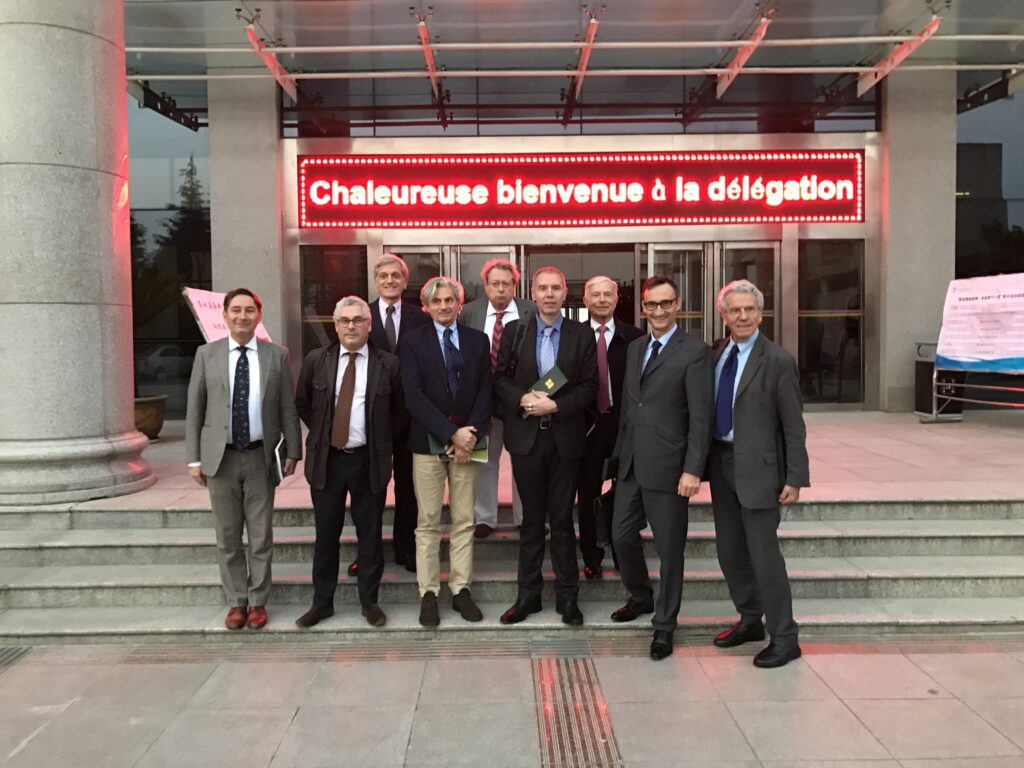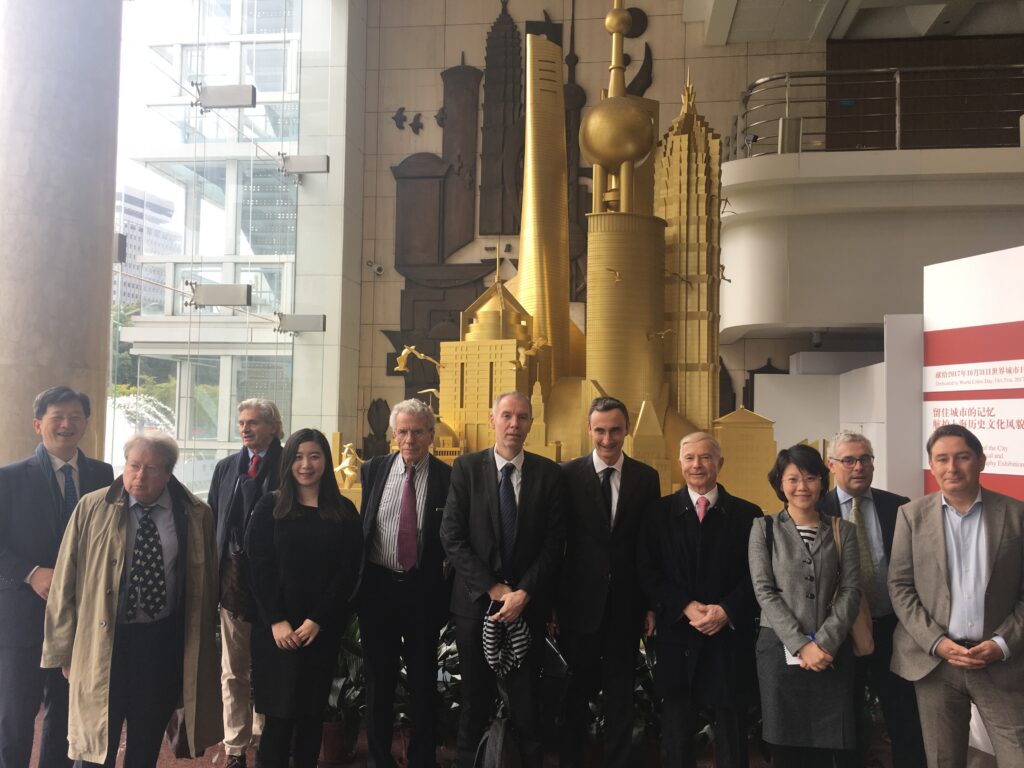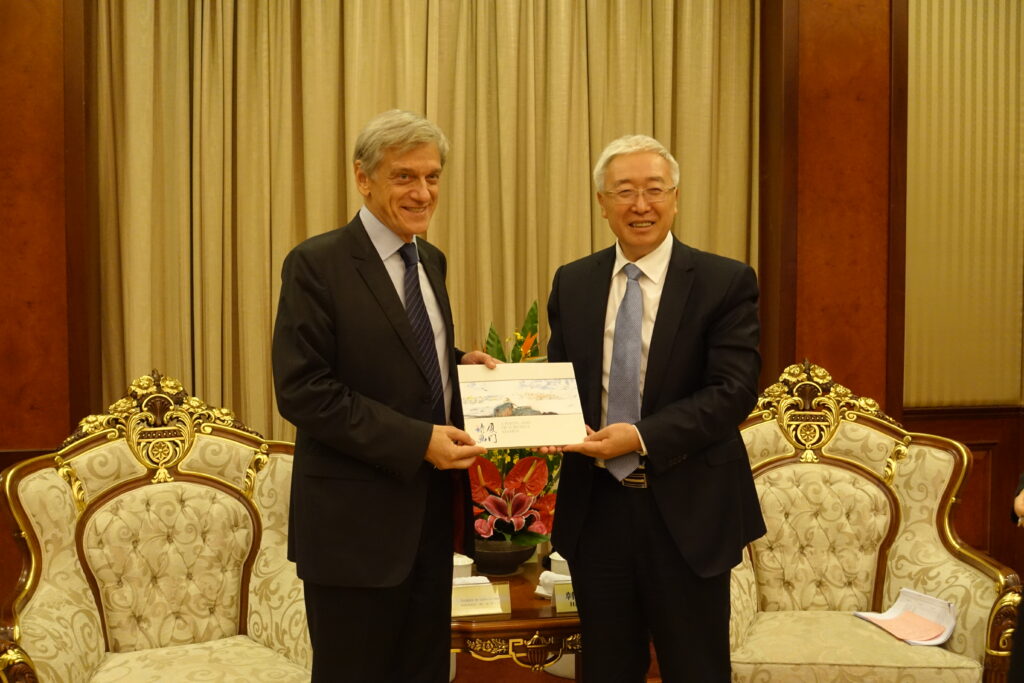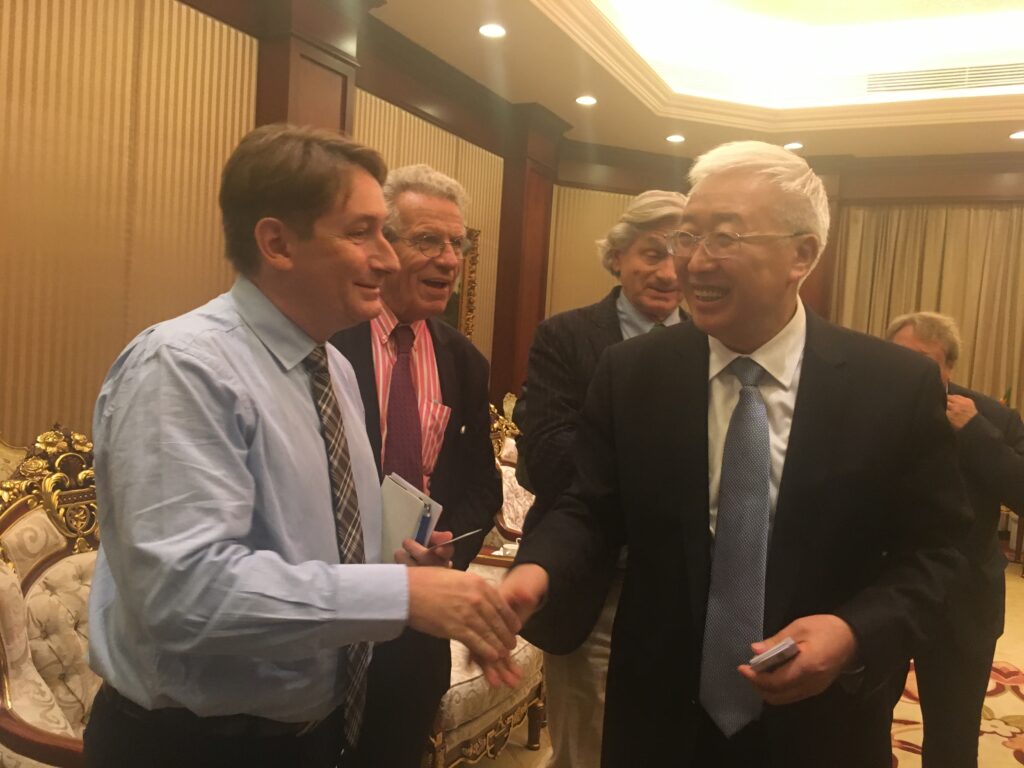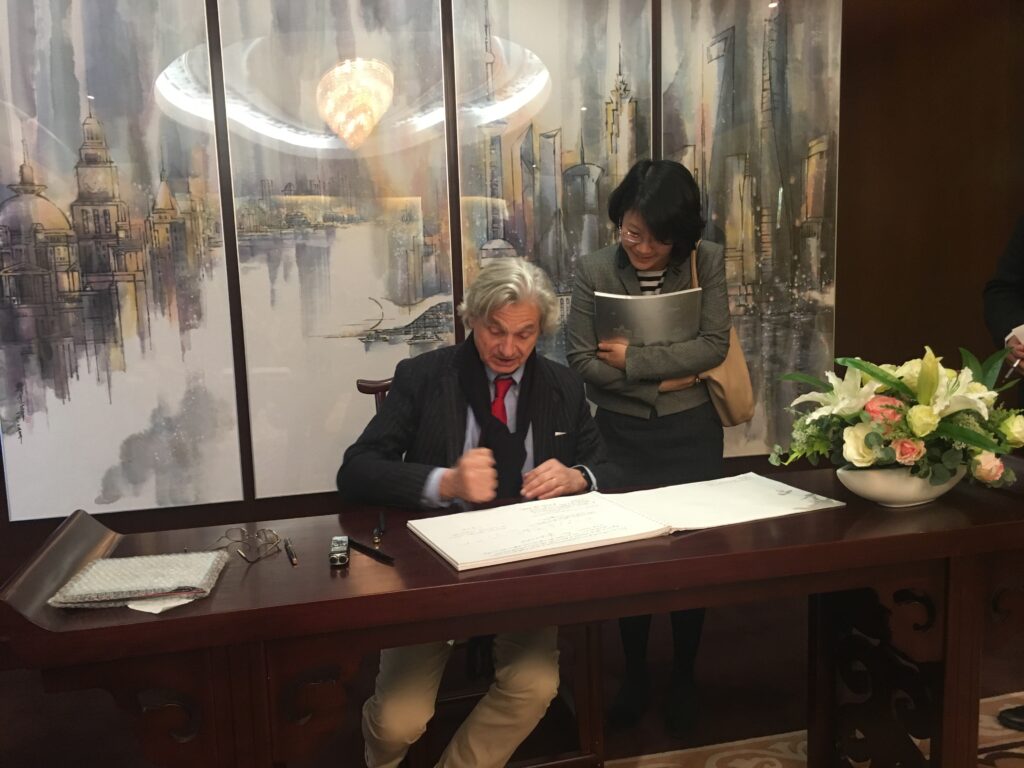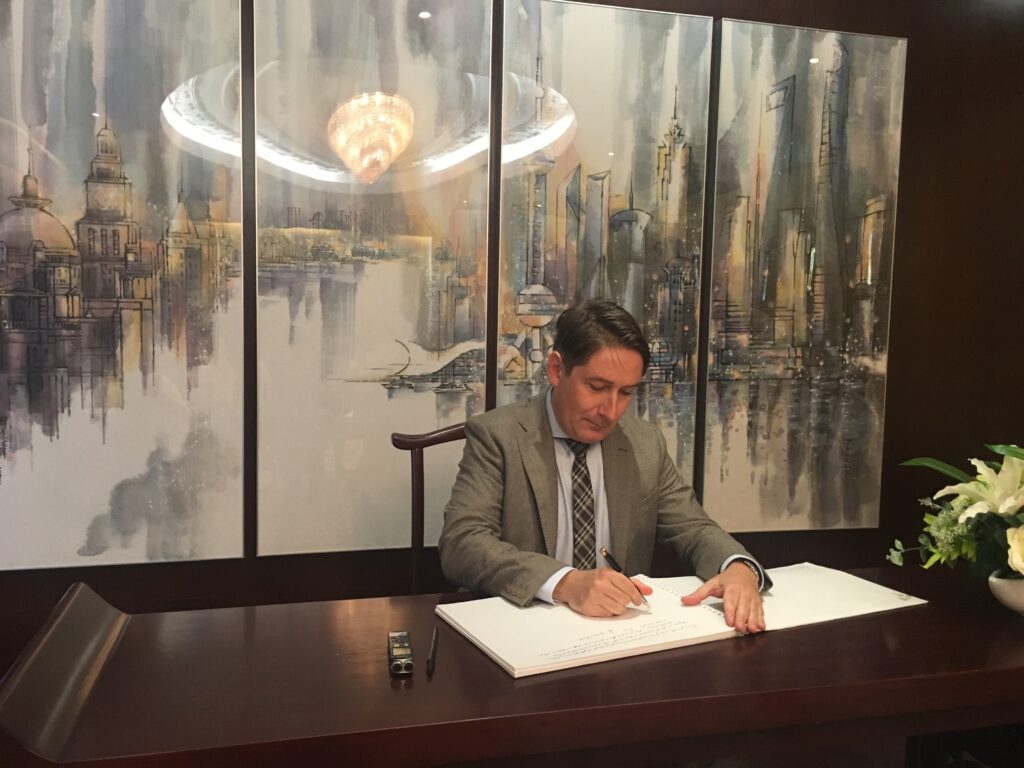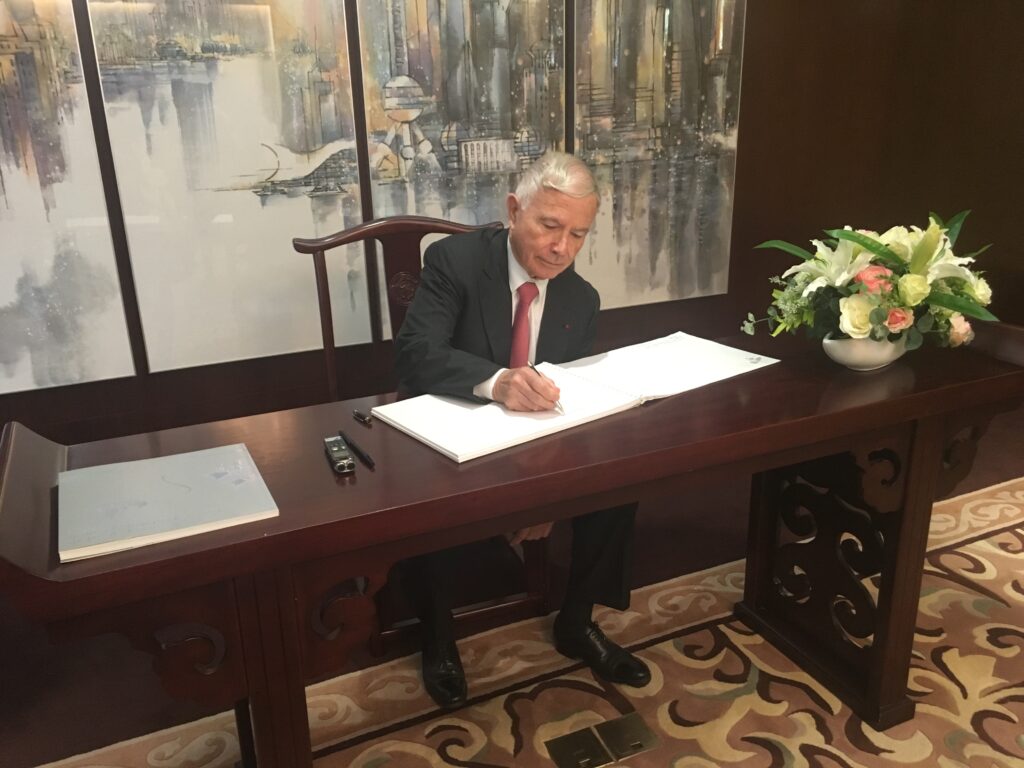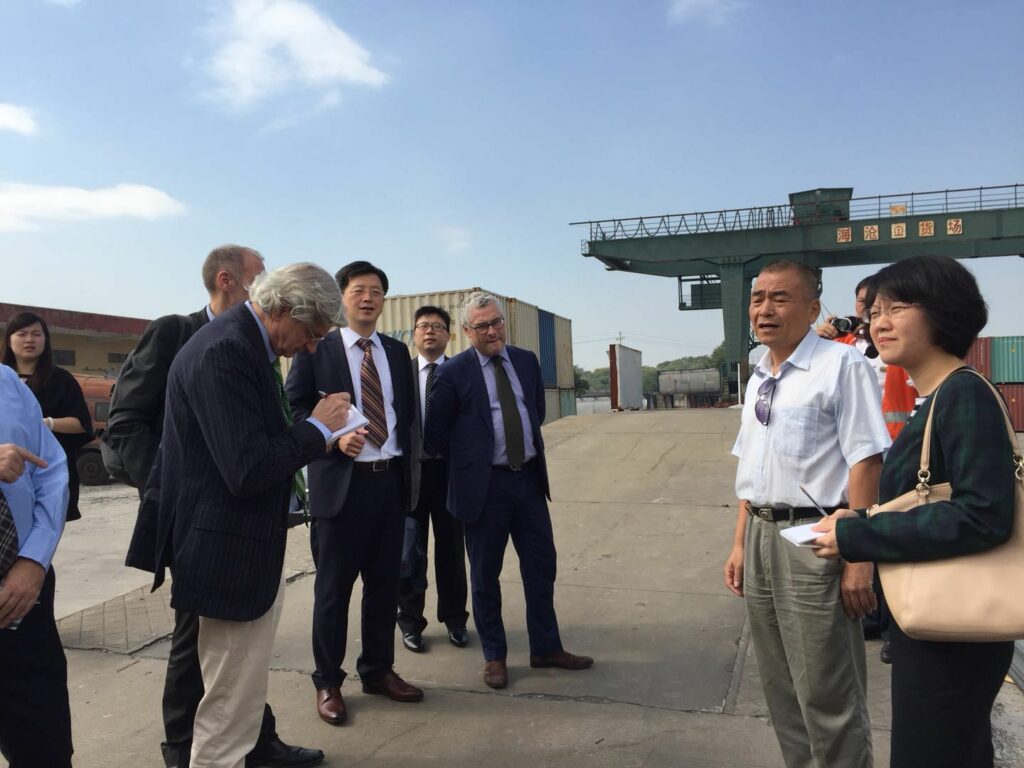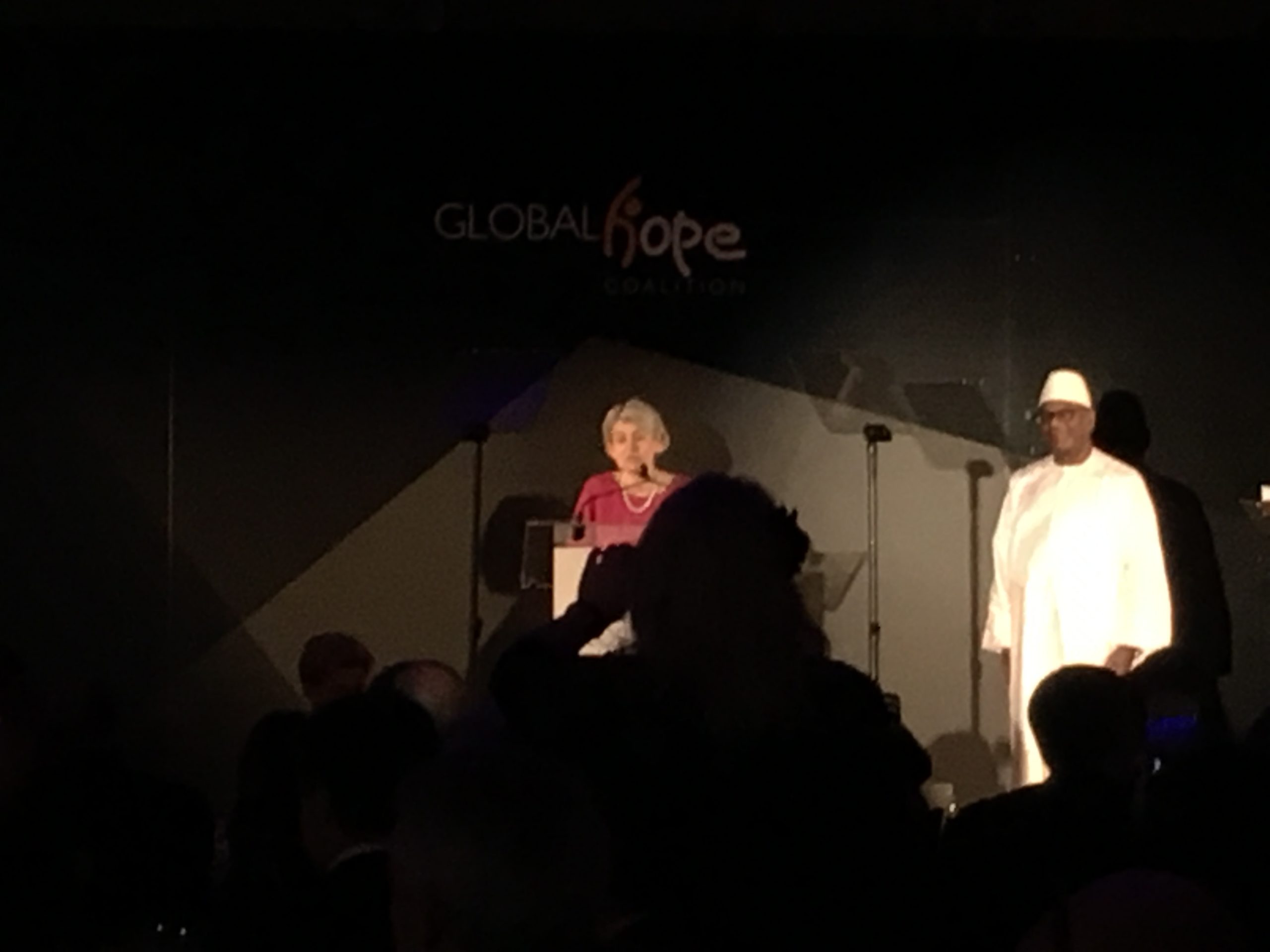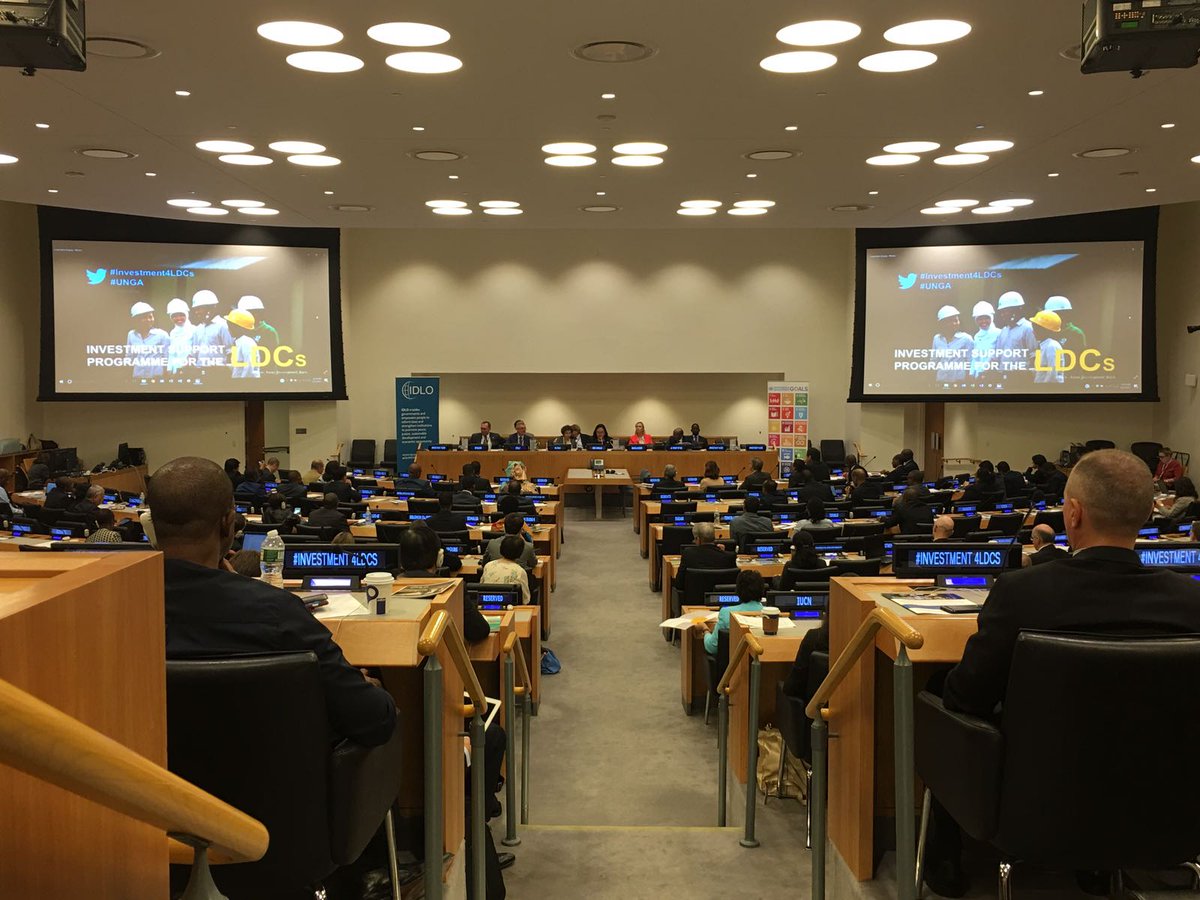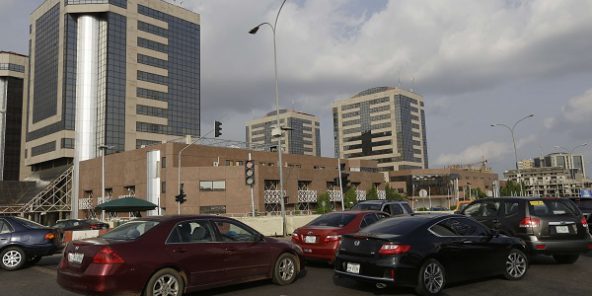Joël Ruet attends the Hope Foundation Gala Dinner chaired by Irina Bokova during the United Nation’s General Assembly
During the United Nations’ General Assembly in New York, between the 19th and the 25th September 2017, Joël Ruet took part in a working lunch with the Malian President Ibrahim Boubacar Keïta in the Public Library of New York.
The Bridge Tank’s chairman then attended the annual Hope Foundation Dinner Gala on the 19th of September. The Foundation, chaired by Irina Bokova, Director-General of UNESCO and member of the Bridge Tank’s board, awarded to President Keïta a prize for his actions to preserve culture, and notably the Timbuktu manuscripts.
Joël Ruet was also interviewed at this occasion by the Moroccan Press Agency, and said that this prize rewarded years of effort in Morocco and its region. He added that the opening of Morocco to Africa demonstrated the King’s understanding of sustainable development and social integration challenges, both in the kingdom and in the region.
Watch his interview here.

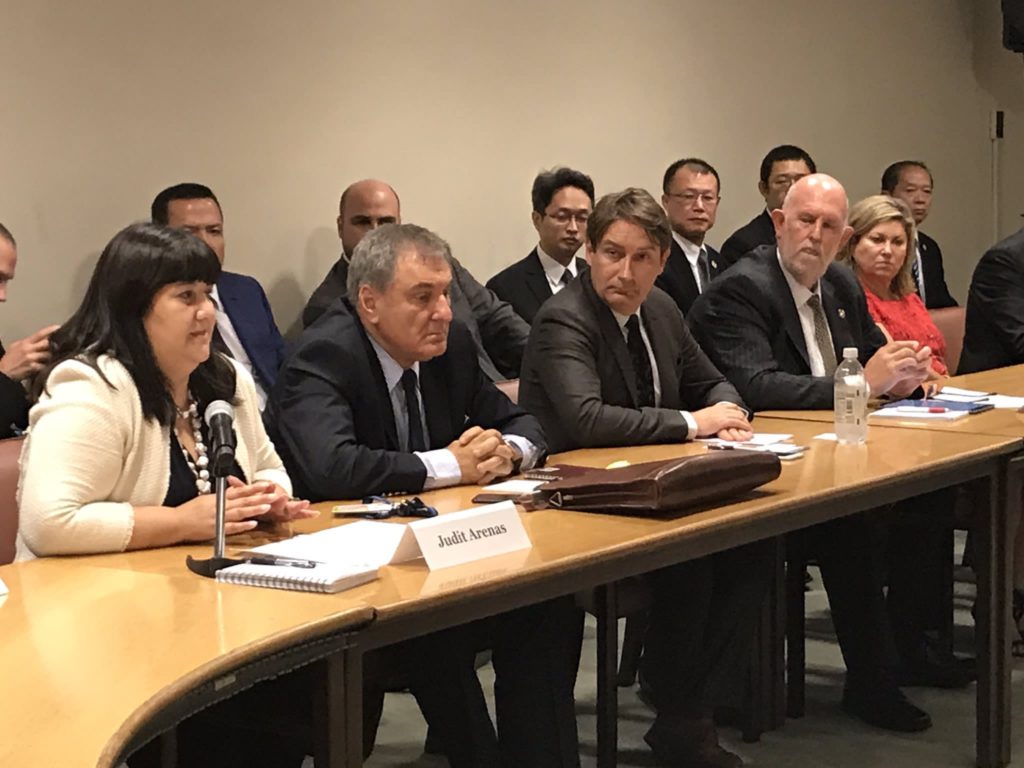
The Bridge Tank at the 2017 United Nations General Assembly in New York
During the United Nations’ General Assembly in New York, between the 19th and the 25th September 2017, our chairman, Joël Ruet, took part in a working lunch with the Malian President Ibrahim Boubacar Keïta in the Public Library of New York. Ruet then attended the annual Hope Foundation Dinner Gala on the 19th of September. The Foundation, chaired by Irina Bokova, Director-General of UNESCO and member of the Bridge Tank’s board, awarded a prize to President Keïta a prize for his actions to preserve culture, notably concerning the Timbuktu manuscripts. The Foundation also awarded the Prize of Special Recognition of Leadership in the promotion of tolerance and the inter-cultural reconciliation to the King of Morocco Mohammed VI.
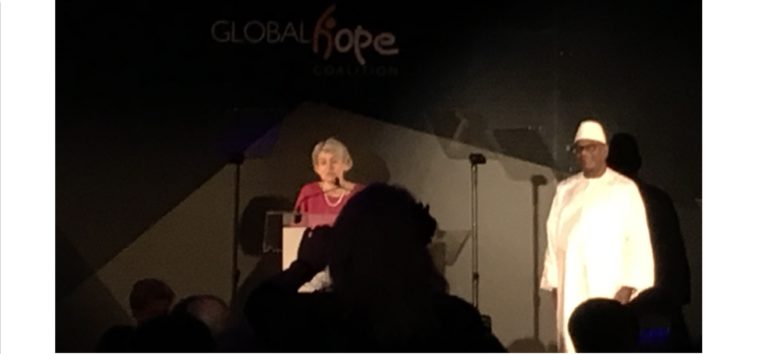
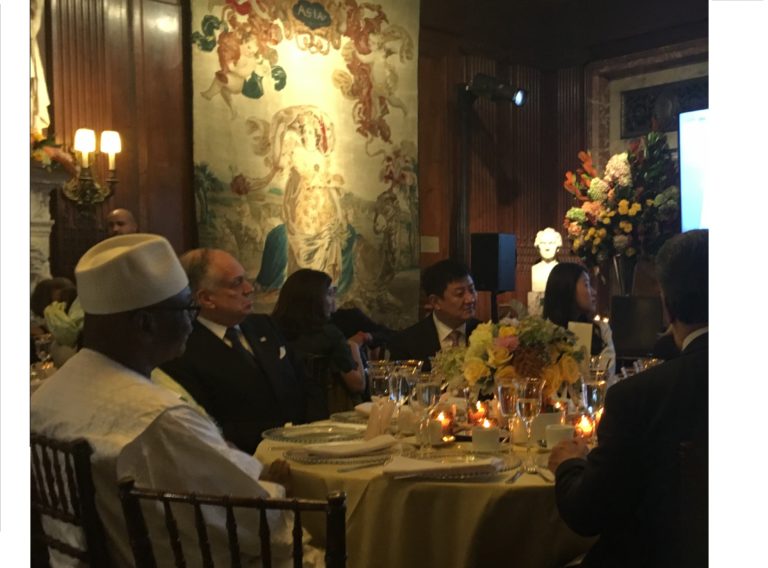
Joël Ruet was interviewed at this occasion by the Moroccan Press Agency and said that this prize rewarded years of effort in Morocco and its region. He added that the opening of Morocco to Africa demonstrated the King’s understanding of sustainable development and social integration challenges, both in the kingdom and in the region.
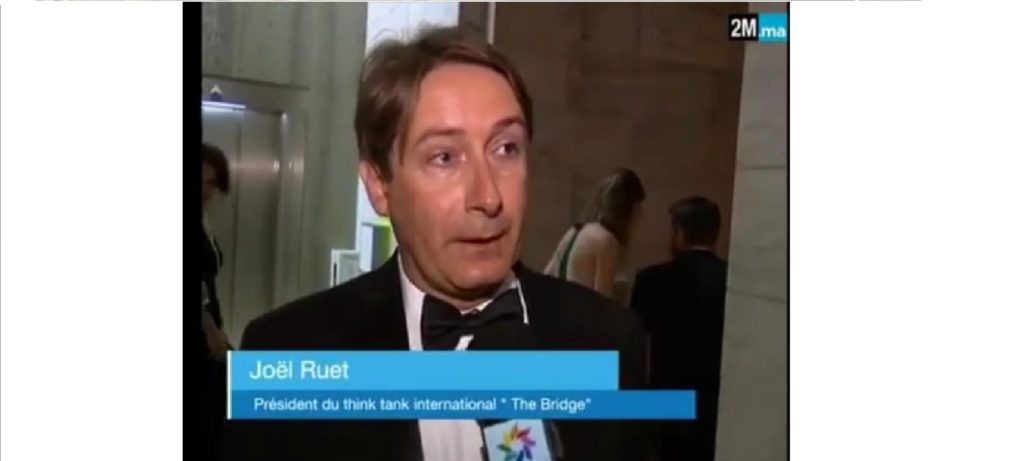
Investment Support Program for #LDCs at #UNGA 2017edition
Thé Bridge Tank’s President Joel Ruet, accompanied by ElHaj Kasse member of our policy board, participated on September 22, 2017 to the Investment support program for LDCs (Least Developed Countries) at the UN headquarters. It was attended equally by ministers, heads of LDCs’ investment promotion agencies, representatives of LDCs’ development partners and experts in this field.
The ISP/LDCs (Investment support program for Least Developed Countries) was first articulated in early 2016. At that time, the international community reaffirmed the commitment to address the special needs of LDCs. This initiative was developed by UN-OHRLLS and IDLO.
The LDCs stand for Least Developed Countries and are the least socio-economically developed countries in the world. This group gathers 47 countries which are the following: Afghanistan, Angola, Bangladesh, Benin, Bhutan, Burkina Faso, Burundi, Cambodia, Comoros, Djibouti, Eritrea, Ethiopia, Gambia, Guinea, Guinea-Bissau, Haiti, Kiribati, Laos, Lesotho, Liberia, Madagascar, Malawi, Mali, Mauritania, Mozambique, Myanmar, Nepal, Niger, Central African Republic, Democratic Republic of Congo, Rwanda, Sao Tome and Principe, Senegal, Sierra Leone, Somalia, South Sudan, Sudan, Tanzania, Timor-Leste, Togo, Tuvalu, Uganda, Vanuatu, Yemen, and Zambia.
This program has received a major financial contribution from the Government of Italy, who wishes to respond through this investment to the need to increase FDI in LDCs for the decade 2011-2020 and also in the 2015 Addis Ababa Action Agenda. In Sustainable Development Goal-10/Target 10.b: Reduce inequalities between and within countries and the importance of the role of FDI (Foreign Direct Investment).
During the conference, Irene Khan insisted that LDCs should always be a priority for the 2030 Agenda “#2030Agenda is about leaving no one behind and #LDCs cannot be left behind”. Also the legal protection of FDI in LDCs was one of the topics discussed.
France Might Miss The Great African Transformation
No French diplomat was present at the launching of the African Union “2016 Transition Report” in New York on September 21st. Is it because it is an internal matter of the African Union, or is it symptomatic of a French disregard for the transformation of the continent ? In either case, it appears that it is one of the many signs that France stands idle by as Africa undergoes many changes. Read Joel Ruet’s analysis on this matter in this OpEd published in Jeune Afrique
The Bridge Tank, a T20 member, participated in the G20 Summit in Hamburg
The Think20 (T20) is a network of research institutes and think tanks from the G20 countries. Its role is to provide policy recommendations to the G20. It also facilitates interaction between members and shares global issues through its blog.
The Bridge Tank, member of the T20, participated in the G20 Summit in Hamburg the 7th and the 8th of July and provided research-based policy briefs for the G20 Insights platforms that aims to support G20 policy making. The Bridge Tank has joined other expert think tanks in writing two policy briefs with the Climate Policy and Finance task force. One of those policy briefs got selected among the 20 best policy briefs that were presented during the G20 Summit. It analyses the role of innovative green-technology SMEs as an opportunity to promote financial de-risking.
To read those two policy briefs : http://thebridgetank.org/en/influence-we-shape/briefings-studies/
Ambitious mobility targets and industrial policy for India
India is ambitious. In order to reduce its CO2 emissions and to respond to urban air pollution issues, it announces, through the voices of its ministers of transport and energy, unprecedented green transition targets in the mobility sector: 22,5% biofuel and 100% electric vehicles by 2030. However, the measures that are supposed to ensure those ambitions seem to be weak, especially biofuels. The incorporation of biofuel ethanol, produced from sugar cane, also serves as a policy for reviving the sugar cane industry and energy independence; A program inspired by Brazil but whose example shows that it requires a coordinated industrial policy among the various sectors concerned. However, the weakness of the measures proposed by the Indian State is compounded by the difficulties of the domestic sugar cane industry and the demands of the domestic automotive industry, which is reluctant to invest in new production lines dedicated to ethanol vehicles.
The EV development program, although still unclear, looks to be better equipped politically and budgetary. However, it is not clear whether it is backed by a domestic industry development strategy or whether it is based on imports.
The green transition for countries in technological and industrial transition such as India cannot be based on the diffusion of imported technologies. Necessarily costly and requiring deep and sustained investment over the long term, it can only be sustainable if it is also the opportunity to accelerate and confirm a technological catch up that has already been well initiated in a specific field. The aim is to coordinate industrial policies with the climate and environmental objectives announced. Finally, new technologies complement one another and require, in order to be effectively deployed, a transversal, visionary industrial policy. The Indian market allows it, industry requires support but does public policy take the necessary measures?
Key points
The Indian objectives for transition to a low-carbon mobility are ambitious but for the moment the measures announced by the government to achieve them are weak.
India’s ability to achieve its objectives requires a more calibrated industrial policy.
Development
India draws inspiration from Brazil for its ambitions in biofuels
Nitin Gadkari, Minister of Road Transport and Highways, told the Indian press that the blending rate for ethanol is expected to increase to 22.5% and that for biodiesel to 15% by 2030. A transition motivated by the objective of reducing urban air pollution but also and above all supporting the sugar cane industry and strengthening India’s energy security. The Minister refers to a strategy of broad diversification of the markets of the agricultural industry towards electricity and bioplastics; Similar to the one that has proved its worth in Brazil and which is inspiring for the minister.
Indeed, in this field, the current Indian context is comparable to that of Brazil in the 1970s, when excess sugar cane production was detrimental to the economic health of the sugar sector, the ethanol-fuel sector was created to absorb these surpluses. This has helped to stabilize sugar prices and stimulate the cane sector economy but also to secure the country’s energy supply. As for India, Brazil’s oil import bill was a strong argument in the government’s decision to support such a transition. However, the strategy implemented by India to achieve these objectives differs from that of Brazil. India prohibits the use of food raw materials for energy production; Ethanol is produced from molasses, the ultimate residue in the different cane sugar production cycles, which does not allow it to serve as an economic regulator of the sector. Beyond this tactical difference, Brazil supported its program on a substantive industrial that has allowed objectives to be achieved. The measures mainly targeted the two industries providing upstream and downstream ethanol value chains: agribusiness and automotive. Through these two industries, the Brazilian government has ensured the dissemination of alternative fuel production and consumption technologies, it has financed the establishment of an alternative technological system to the conventional and dominant system of petroleum. This program is necessary for India if it wants to achieve its objectives, and which is also an opportunity of a technological disruption for a more economic and environmental competitiveness. These two industrial pillars of any agrofuel development program face challenges in India that are not yet resolved by the government’s strategy.
India’s industrial strategy questions itself,
Concerning the automotive industry, the government encourages manufacturers to produce “ethanol-compatible” models. Specifically, it is either to modify gasoline models so that they can continue to run efficiently with a fuel mix more charged with ethanol, up to 85 or 95%, or to produce models compatible with 100% ethanol fuel, such as the famous flex-fuel engine sold in Brazil.
If some industrialists follow – the Volkswagen group, which is very present in Brazil, and should manufacture the first flex-fuel models adapted to the Indian market – representatives of national manufacturers express the reluctance of domestic manufacturers. According to them, the country’s manufacturers do not have the means to invest in new production lines dedicated to flex-fuel motors, they express their fears about competition from foreign manufacturers based in Brazil, more experienced on this technology. Finally, they do not believe in the capacity of the Indian ethanol-fuel industry to produce the volumes needed to create a profitable market. The Brazilian government has twice been faced with similar reticence from car manufacturers; To convince them, in addition to an ethanol vehicle sales subsidy program, he had to commit to taking agro-industry sufficient measures to ensure production and availability at the ethanol fuel pump. Indian carmakers do not believe in the take-off of a domestic fuel ethanol industry. This industry exists but fuel ethanol prices are not attractive enough and most of the locally produced ethanol is sold to the chemical industries.
The Bridge Tank attends the 18th edition of the International Symi Symposium
Between the 2nd and the 7th of July 2017, the 18th International Symi Symposium took place in Elounda, Crete. Centered around George Papandreou, former Prime Minister of Greece and currently President of the Socialist International, this forum gathers every year leading intellectuals, politicians, Nobel laureates, entrepreneurs, diplomats, scientists, and activists to debate on current issues.
Joël Ruet, chairman of the Bridge Tank, took part this year. Two of the keynote speakers were Amr Moussa, former Secretary-General of the Arab League, and George Papandreou, former Greek Prime Minister and President of the Socialist International. They expressed their opinions on the subject of “Cyber Challenges for Peace, Democracy, Communication”.
Policy Brief – Soil as natural capital : a factor for sustainable growth diversification
By Edouard Lanckriet –
The soil is a living ecosystem that is capable of growth and diversification. It is also a productive capital but the conventional methods and technologies of its exploitation could lead to its destruction. Reversing this paradigm is the basis of a green growth strategy: the soil can become a carbon sink again, and the material and energy it produces can fuel genuinely sustainable industries, especially mobility. As a capital, the soil is not irremediably degraded; Sustainable management of soil capital is hence a priority for sustainable diversification and climate.
Key elements:
► A green growth strategy requires an understanding of the functioning of natural capital, which can grow not with the use of externally supplied resources but by generating it’s requirements through the natural cycle photosynthesis and production of organic humus. This is unique when compared with the classical economic approach to “capital”: all non-living capital degrades over time and can only increase by consumption of resources. The characteristics of Capital-soil offer the possibility of a truly sustainable growth only if the methods and technologies used to exploit it do not prevent this growth.
► Brazil presents a concrete example of this form of transition towards green growth. The upstream industrial biomass production sector has been coupled with downstream energy and mobility sectors.
Read more in French:
The Bridge Tank meets The Shanghai Institute of International Studies
On the 6th of June 2017, the Bridge Tank received in our Paris office at the Brongniart Palace a delegation of the Shanghai Institute of International Studies, led by its President, Chen Dongxiao, who chaired over the T20 conference during the 2016 Chinese presidency of the G20 summit. The discussion between the two think tanks was centered around intellectual cooperation as part of our common belonging to the T20.

